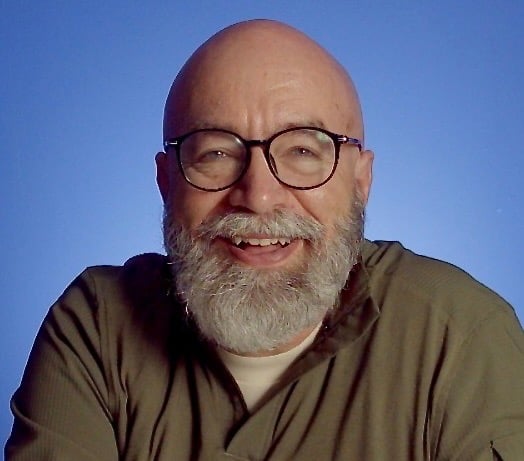
Long ago -- twenty-eight years to be exact -- I began a private study that is just now wrapping up. More about that at the end of this post.
For now, let's touch on a problem one faces when establishing and building an organization. Over time, successful leaders become surrounded by people who tell them woulda, shoulda, and coulda.
- You coulda named your nephew as the Senior VP instead of that person you didn't even know!
- You shoulda recruited more people of color!
- If we woulda purchased the right equipment from the beginning there never woulda been an accident!
- You shoulda-woulda-coulda been more environmentally sensitive, paid higher wages, negotiated that one better, been nicer to your employees, been firmer with your employees, dressed better for success.....!
The list gets long quickly, and a competent leader knows they cannot navigate by coulda, woulda, or shoulda. Sometimes there is accurate and brutal truth in them. Sometimes not. Almost always, speakers use the opportunity as a foil to feel better about themselves far more than offering assistance to build something special, something expansive and benefiting the broadest spectrum of people, something that blesses one's family, and something that promotes safety long into the future. The competent leader must navigate according to a north star made up of a hard-won set of mission, vision, and values statements that flow into a strategy and a nearer-term plan. By doing this, they can take their next steps in overcoming those deficits that all the standers-by keeping pointing to as they mutter woulda and coulda and shoulda.
An example from my own leadership life brings us around to that long, private study I mentioned. Since 2000, Design Group International has grown from the expertise I had been able to gain up until that time. My first wife, Lorie, had been diagnosed with the disease she would battle for so long and which ultimately took her life. This happened long before Obamacare, and the resulting, immediately-spiking health care costs threatened to bankrupt us within weeks. The one avenue open to me was to set up a private practice through which I could direct all my earnings where they needed to go -- to covering medical bills especially. We heard a lot of shoulda coulda wouldas that I'm sure were intended to be supportive but were pretty blind to what we were really facing. We had to navigate by greater lights than the suggestions or critiques we were hearing in order to do what it took to bring our children into adulthood while their mother suffered. Twenty years later we are still here...and thriving!
As we launched this practice, now Design Group International, we had the clients I was able to land, mostly non-profits and religious organizations. The demand for Process Consulting grew, and I was able to network in other like-minded colleagues, notably Phil Bergey and David Bell. The woulda shoulda coulda statements grew even as we grew as an enterprise. Yes, we were middle-aged white guys from the Midwest. Yes, the three of us had strong denominational roots as one aspect of who we were. Yes, our nonprofit experience was more extensive than in for-profit businesses or higher education institutions. But, we were and are on our way to becoming a Community of Practice built around Process Consulting, located around the USA, able to assist with global organizations, women and men working with a clientele that represents a broad spectrum of peoples and cultures. We may stumble and have some limited capacity in this direction we intend to go, but it is the intended direction, and we are making progress.
One of the woulda coulda shoulda subjects repeatedly set in front of us is the spiritual commitment that is most certainly infused in the DNA of Design Group International. We've heard it all! We shoulda established our Christian bonafides by publishing a confession of faith. We coulda had more clients if we had disavowed the religious heritage that many of us embody. We woulda seen more consultants join us if they hadn't felt they needed to be white male members of the clergy.
We have never demanded a particular religious practice from anyone - and we have welcomed the variety of intentional spiritual heritage and practices of our consultants and clients. That has been our only approach all these years, and it has worked well for us.
- The client's mission, vision, and values are what guide our work.
- Our corporate mission, vision, and values are all about client mission, vision, and values.
- If a client has a declared mission to be about the destruction of someone or something, that is the line we do not cross, and we say no.
This is the extent of our policy. We compare woulda, shoulda and coulda demands against this policy.
Just as I intend to grow in wisdom around Process in organizations and in executive leaders, I intend to grow personally in mental and physical and spiritual fitness. I share what I learn, and I listen to what is shared with me. I keep growing and integrating. When I share, it is out of an ever-richer soil in my life, and I hope others will add to that rich soil from their life experiences.
Twenty-eight years ago, I started working through the Hebrew Scriptures (what so many refer to as the Old Testament) as a central part of my spiritual practice. I wanted to see what it was that God is credited with doing and saying. I wanted to be sure that I understood what all those generations of people across history believed God cared about, how God acted, and how they understood God's self-description. I believed it would help me be a better husband, father, neighbor, worker, and leader. I took a few verses at a time, made notes, and meditated on what was in front of me. The fruit of this study after all these years boils down to six key statements:
- God is Creator (not me, but I get to help).
- God is lover first and judge second (I found significant parenting lessons here).
- God does what God pleases (and it pleases God to live in a loving covenant with humans).
- God is both near at hand and over everything (and I am sooo limited).
- God's presence either makes me say Amen or Oh My (depending on whether I am arrogant or humble).
- God can and does intervene - and prefers not to (preferring to work through people).
Perhaps I shoulda expressed these differently. Perhaps I coulda completed my study years ago had I been more diligent. Perhaps I woulda been a better entrepreneurial leader, or parent, or husband, had I been more mindful of these basic understandings from the beginning.
We can only live and be in the body we have. We will only be able to live in the time in which we are planted. We should be fully present with those people by whom we are welcomed as companion.
Should. Will. Can. They are such better words.
Better still? Be.
The best word of all.
Are you a senior executive leader facing into the future's chaos? The next cohort for Maestro-level leaders gets underway in January. Your inquiry puts you in direct touch with me. Let's talk about whether this four-year experience is for you.
The Third Turn Podcast is an ongoing resource for Maestro-level leaders everywhere and we invite your subscription and sharing.
Tags:
process consulting, strategic planning, Mark L. Vincent, Design Group International, Vision and mission, leadership, Maestro-level Leaders, The Third Turn, Spiritual Commitment
Post by
Mark L. Vincent
December 10, 2020
December 10, 2020
I walk alongside leaders, listening to understand their challenges, and helping them lead healthy organizations that flourish.
Comments